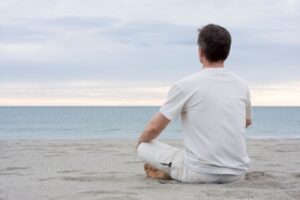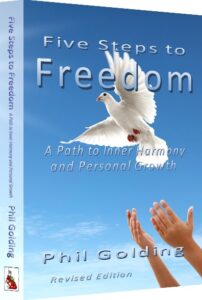Learn Mindfulness
Gain the Benefits and the Confidence that you get from Taking Charge of Your Mind
1. Personal Mindfulness Training Sessions
Fast-track your Mindfulness training and experience with a series of personal Mindfulness training sessions that will focus on your unique personality and needs.
2. Workplace Mindfulness
Taylor-made group training for your staff to enhance workplace harmony and creativity and improve your business bottom line. At your premises or ours.
Benefits of Mindfulness
- Reduced stress and anxiety
- Increased self-awareness
- Reduced negative self-talk
- Increased inner-harmony
- Increased mental concentration
- Increased emotional wellbeing
- Increased calm
- Increased resilience
- More harmonious connection with others
- Increased personal balance and autonomy
- Increased physical wellbeing
- Enhanced creativity
- Increased Self-Confidence
What is Mindfulness?
Mindfulness is the practice of cultivating awareness of what our minds are perceiving and creating and how best to utilise that awareness for the purpose of achieving harmony, peace, clarity, and for making effective and appropriate choices in our lives.
Mindfulness is a form of “on the go” meditation that is designed to enhance our ability to take effective control of our minds and therefore our lives. Its strength is in giving us the ability to stay in touch with our greater potential anytime and anywhere.
A Deeper Look at Mindfulness
The quality of our lives is largely determined by the quality of the conditioning that we received throughout our childhood and adolescence, not just from our parents, but from our overall environment, and also unavoidable circumstances. Our conditioning determines what we believe about our own self-worth, which is the foundation of our self-esteem, which is about our relationship with our own self. The way we perceive ourselves determines the ways we perceive the world around us. In other words, we don’t experience the world directly, we experience the world, including our relationships, through the filters of our own conditioning. As we are growing up, however, we are mostly unaware of how our conditioning is colouring our perceptions of ourselves and the world around us, and therefore determining the quality of our experiences in life. We often assume that we are unhappy because people don’t treat us well enough, or that circumstances in life are unfair, without realising that our conditioned ways of thinking has been undermining our resilience and our ability to manage our daily affairs in an empowered way. Even what we regard as ‘normal, healthy’ conditioning can still have its limitations. This is the dilemma and the challenge of being human.
It is true that we had no control over our circumstances and our environment when growing up. We could not control how we were conditioned, but as adults, we have access to a potential that enables us to turn all that around. Mindfulness teaches us how to get into the drivers seat of our minds and become the guardian/parent/manager of our minds. When in the drivers seat, we have access to our real potential that we can use to heal and recondition/reprogram our minds to overcome confusion and suffering and create the life that we want.
Mindfulness is the practice of cultivating ‘Awareness’ of what our minds are perceiving and creating and how best to utilise that awareness for the purpose of achieving harmony, peace and clarity, and for making effective and appropriate choices in our lives. As children, we do not have the ability to harness our power of Awareness. Our parents are actually meant to be teaching us how to be Aware, but our parents, just like ourselves, were subject to their own human conditioning.
Life’s circumstances can certainly be challenging at times. Even our own character can be extra sensitive and challenging, but the key to peace and happiness is how you accept and deal with those challenges. Awareness is a potential within us that has the power to rise above conditioning. Awareness gives us the ability to learn and adapt. Awareness gives us the ability to observe our thoughts and feelings from a higher perspective, enabling us to identify thought habits that disempower us and cause us to suffer. Awareness is where we are able to access our true potential.
Therefore, Mindfulness shows us how to identify ourselves as Awareness, and teaches us how to develop an accepting, compassionate, responsible and loving relationship with ourselves. Through Mindfulness, we come to realise and experience that the limitations of our childhood conditioning and personal circumstances are in fact opportunities for learning and growing and accessing our real potential. We come to understand that problems are, in fact, opportunities to expand our awareness and take care of ourselves the way we always needed to be cared for. Ultimately, no one can take care of your mind better than you can, because you are able to experience your mind and have access to your mind with your Awareness 24/7.
The Mindfulness Technique
• Slower, deeper breath than normal.
• Focus attention on the breath to centre yourself in the present moment. Keep returning to this conscious-awareness of your breath whenever you get distracted.
• Be the open, neutral (non-judging), detached observer of all that passes through your awareness while you are staying in touch with the open, relaxed rhythm of your breath.
• When we do this, we are opening our awareness like we are opening a door, so the mind and body and the environment can flow through this door of awareness. As our practice continues, the awareness door gets wider and the space for awareness increases.
• Observe how your mind reacts to thoughts, feelings, physical sensations and the outside environment, but don’t react with it. Let everything flow through you. Observe the experience of your mind as everything passes through your awareness.
• Practice Mindfulness anywhere and anytime and for any length of time.
• The more frequently you practice mindfulness, the more awareness that you establish.
• Don’t expect your mind to behave itself. It is controlled by very powerful primal instincts that switch on automatically and have only limited awareness, and therefore easily get confused.
• Our primal instincts are like a child, and or conscious-awareness is like the parent of that child.
• The first stage of the process is just learning to be aware of the mind and what it is up to. Often the first thing we observe is how out of control our minds are. Don’t judge yourself for having such an out-of-control mind. We are all basically the same. You are just observing basic human nature. It is very important to practice being patient, accepting and compassionate toward yourself as a part of the Mindfulness practice. It is like learning to be a caring and attentive parent.
• What we are doing is cultivating a potential (awareness) that we all have, but we all have to recognise it and deliberately switch it on.
• At first, the noisy mind may seem too strong and chaotic to get above, so patience is the key. Awareness is ultimately far stronger than the mind, but you have to get a “feel” for it, just like we do when learning a new sport, or learning to drive a car. You are learning how to consciously direct your mind.
• Any increase in awareness will make a positive difference to your life.
• As your awareness grows, old redundant, self-defeating thought habits will start to fall apart by themselves – you will have insightful “aha” moments.
• Being persistent with your practice is naturally important to develop skill.
• The practice of Mindfulness can become the foundation for unlocking our greater potential in many diverse areas of our lives.
Where did Mindfulness come from?
Mindfulness is usually associated with ancient Buddhist practices, but the wisdom can also be found in Hinduism and also Western wisdom traditions. Over the last 40 years, modern psychology has accepted the validity of Mindfulness and has observed how Mindfulness has increased the effectiveness of various therapy models. Incorporating Mindfulness into an academic psychology approach has, however, limited the depth of understanding of the potential of Mindfulness. Understanding the full potential of Awareness is the key.
Mindfulness on the go?
Mindfulness is usually initially taught through various guided meditation exercises to enable students to familiarise themselves with the process and to built confidence in their practice. Even though standard meditations can go for 20 to 30 minutes or more, and often with eyes closed, mindfulness practice mostly consists of smaller, more frequent “moments” of meditation that can be done wherever you find yourself, such as waiting for the bus or train, walking to get somewhere, pausing on a park bench, sitting at your computer at work or home and so on. It is about learning to bring the power of awareness into your everyday moments of life.
Simple, yet effective power of Awareness
We live our lives in the present moment. We can only act in the now. We can only interact and connect with another person in the now. Our lives are created by what we do now, which is, in turn, determine by what we think and feel in each now moment. The more we can consciously harness our mind in the now, the more effectively we can live our lives. This is Mindfulness, or having a mind full of awareness.
The practice of Mindfulness is not new in our culture. For years now, we have been practicing forms of Mindfulness to enhance our ability to play sport, for example. It is common knowledge that you can’t perform to the best of your ability if your mind is not focused and aware of your intentions and actions in each moment.
The same applies to our everyday lives. For example, how much time do we spend regretting what we have done in the past or worrying about what is going to happen in the future? Indulging in such thinking causes us stress, which interferes with our ability to manage our day and be happy. There are many other ways our thinking creates pain and confusion in our lives, often without us realising what we are doing to ourselves. Often we think there is nothing we can do about this, but that is not so. The simple practice of Mindfulness offers us a way to rise above old problematic thinking habits to a place of peace, where we can then be aware of our habitual thinking, rather than be lost in it.
While accessing this state of peace, our natural potential of awareness is dismantling our old ineffective ways of thinking. This is because so much of our thinking operates below our conscious-awareness, like a dysfunctional old government department that has been running for years without being accountable to anyone. Once the workings of this department come under review, it becomes obvious why it is not working well, and the solutions are often also obvious as a result.
Ineffective thought habits are usually created during childhood, when we had limited access to our awareness. Our mind was just randomly accumulating this information. We rarely had the opportunity to step away from these experiences so as to see them with perspective. Because of this ongoing lack of perspective, we end up going through life thinking that that is just the way things are. Some of these unconscious perspectives on life work well for us, but many get in the way of our peace and happiness, and they restrict our potential.
Revealed within the light of our new awareness, many of these ineffective thought habits simply start dissolving because they don’t stand up to basic reasoning. We have those marvellous “aha” moments that shift our reality for good. The simple practice of Mindfulness, therefore, enables the light of our natural potential of awareness to shine on our old ineffective thought habits, allowing us to tidy them up with the abilities that we already have. That is just the beginning of what Mindfulness can achieve.
Why Focus on the Breath
Every Breath is Now
To find that place of peace and also activate the power of awareness, it is important to centre our attention in the present moment. Every breath we take, we take in the present moment, so this is what is used to bring our awareness into focus. Furthermore, we can access our breath anytime, anywhere. This technique of centering our awareness provides a contrast to the mind, which tends to be all over the place like a playground full of unruly children.
When we center our awareness in the now by focusing on our breath, we can get above the chaos, like placing a tennis umpire’s chair in the middle of the play ground where we can then take it all in, without being so swept around by the noise and the chaos. Like the tennis umpire, we can then become the observer. The chaotic flow of our mind has to then push into this inner-focus, making it easier to be aware of it when it does.
One of the first things we tend to discover when practicing mindfulness, or any other form of meditation, is how little initial control we have over these subconscious habitual thought patterns that quickly grab our attention and sweep us into their busy and chaotic currents. Every time we are swept away by the seemingly countless distractions, it is then a matter and reconnecting to the breath and get back to observing.
Creating Peace
The way we breathe is important as well. We can cultivate a state of peace by breathing slowly and a little deeper than perhaps we normally would. This is how we breathe when we are relaxed and calm. When practicing Mindfulness, we consciously and deliberately choose to breathe this way, even if our habitual thoughts may be distracting or stressful and our body may be tense and restless. Our open, relaxed, calm breath creates a cultivated environment that is naturally health promoting and different to stressful thoughts and feelings, which helps us to be aware of the stressful thoughts and feelings in comparison to our open, relaxed, calm breath, from where we are observing our mind.
Much of our stressful thinking has little to do with what is happening now – it is more about what we “imagine” might happen. Our mind is trying to get ahead of itself to protect us in some way, but in reality, we are only living in, and reacting to, our own imagination, which our mind forgets. It is like sitting in front of a scary movie that is created by our own mind. Our body naturally reacts to these scary thoughts like it does when we are watching a scary moving, which convinces us even more that the movie (our scary thoughts) are about something real, even when they are not. The movie ends and we walk out of the theatre knowing that it was not real, but we can’t so easily walk out of our minds, which is a big part of the problem. We have a lack of perspective of what our minds are up to.
Breathing in this open, calm way sends a signal to our body, telling it that everything is okay. This also helps to reveal when our habitual thoughts are out of place with the present moment.
Now that we are consciously choosing a state of peace by focusing on our slow, open, calm breath, that is also helping us be aware of the present moment, we now consciously assume the position of the detached neutral observer of our own mind and body as thoughts, feelings and physical sensations pass through our awareness.
Awareness + Observation leads to Conscious Choice
The way we act in any given moment is determined by how our mind reacts in that moment. Are our actions in that moment a balanced conscious choice, or an unconscious automatic reaction that may not be appropriate? Awareness of our mind’s initial reactions is the key. Therefore, a key to Mindfulness is an open, non-judging observation of all that passes through our awareness. We are creating enough “space” in our consciousness to observe the way our mind reacts to our environment, our bodily sensations, and to our own thoughts and associated emotions. We are suspending the urge to act on that which passes through our awareness and are choosing to just observe it instead.
When we center ourselves and observe our mind in this way, we are giving awareness a chance to simply do its job of being aware, which it is rarely given. In this way, we are able to increasingly “see” what is real in the moment we are in, rather than being “blinded” by all the noise that is coming from our habitually programmed mind.
It is normal for our thoughts to distract us from our neutral observer position. Before we know it, we are caught up in our thinking and have lost contact with our open, slow, calm breath. It is important to accept this as part of the experience. As soon we realise we have been swept away, it is a simple matter of reconnecting to our conscious breath and reinitiating our position as the observer. Being distracted is also something to neutrally observe. There is no standard of practice we have to reach, and therefore there is no failure to reach some standard. There is just the experience of cultivating increasing moments of peace and awareness amongst the often chaotic traffic of thoughts, emotions and physical sensations. As the practice of mindfulness continues, our ability to establish, at will, presence of mind, peace, and happiness increases.


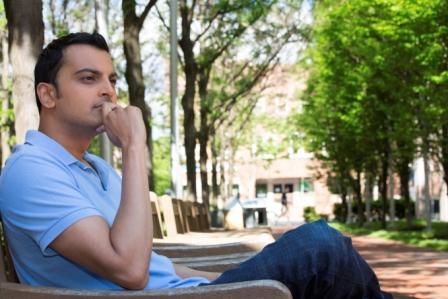

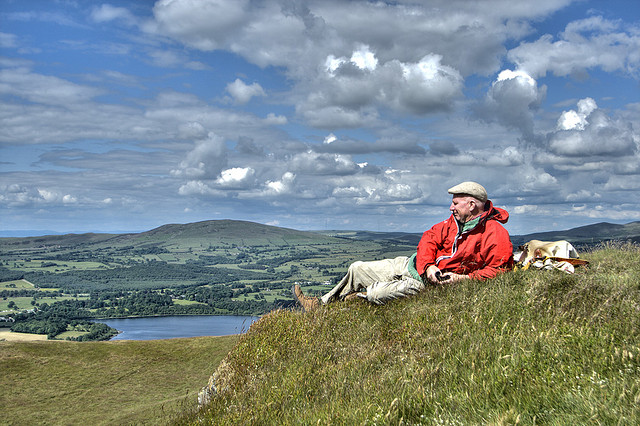
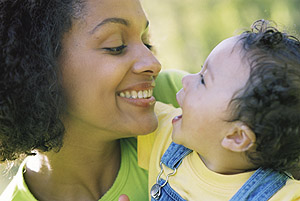
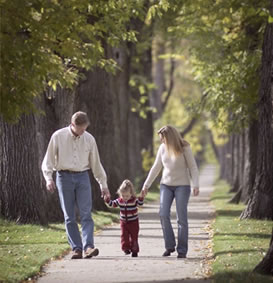



![leehom2[1]](https://innerharmony.com.au/wp-content/uploads/2016/05/leehom21.gif)

